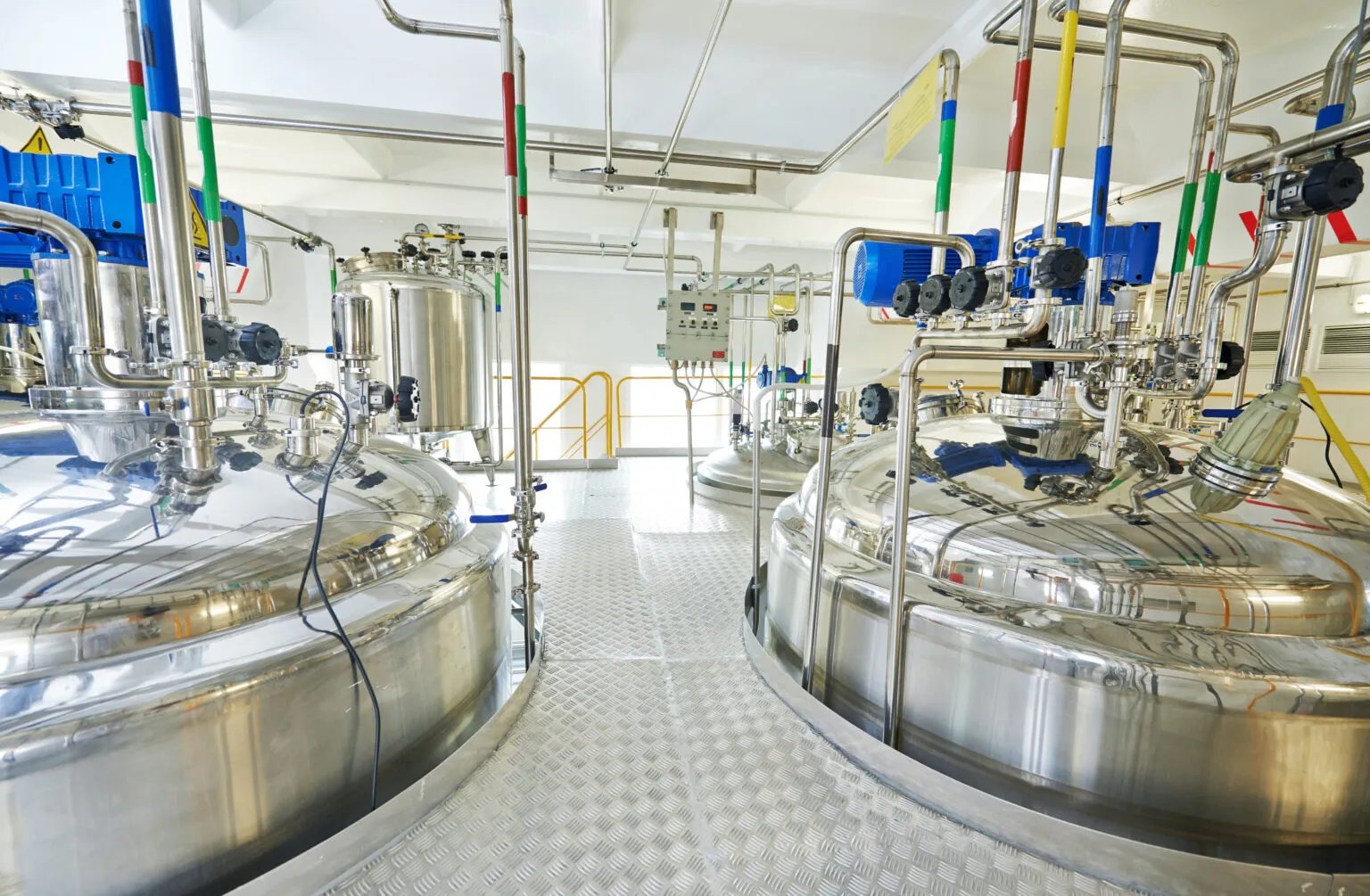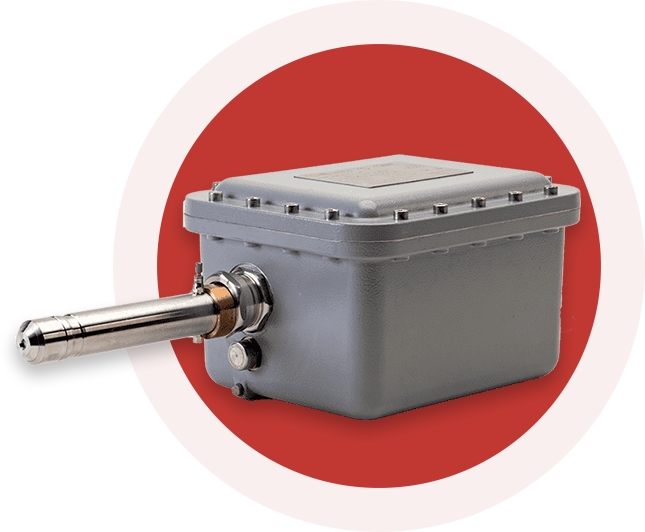
Pharmaceutical Manufacturing
The IRmadillo for Monitoring Pharma and Biopharmaceutical Production
The pharmaceutical sector has been an area of intense and rapid evolution in recent years, with the advent of Quality by Design (QbD), continuous manufacturing and aims of achieving Real-Time Release Testing (RTRT). Achieving this requires a fundamental shift in the mindset of manufacturing teams, and they need the tools that will allow them to better control their processes and ensure tightly controlled specifications are met.
Analytical experts are used to using high performance equipment in laboratory settings (such as NMR, HPLC and reaction control systems with integrated spectrometers), but these are simply not suitable for manufacturing environments. Moreover, many of these instruments are not stable enough for long-term manufacturing campaigns that are a key backbone of the continuous process. So how can QbD and RTRT be achieved if the tools are only suitable for laboratory settings?
The answer lies in industrial-grade spectrometers, providing real-time spectra that can be analysed to provide concentration traces, batch modelling and descriptive statistics of a campaign. They can be installed on both batch and continuous processes, and work with both classical small molecule chemistry and large molecule bioprocesses. The most important feature of spectroscopy is not whether it can work or not, but in choosing the right technique for the process.

Using the IRmadillo to
Monitor Pharmaceutical Production
The choice of instrument for your process does depend on the process itself, as well as the sorts of information that you need to better control and optimise it. In practical terms, this often comes down to a choice between Raman, near infrared (NIR) and FTIR (mid-infrared).
There are an almost unlimited number of different small molecule reactions in organic chemistry, and the vast majority of those can be studied using FTIR. A representative list of processes that have strong features in the infrared spectrum are:
- Transition metal catalysed coupling reactions (i.e. Heck, Sonogashira, Suzuki, Stille)
- Addition, elimination and substitution chemical reactions
- Protection and deprotection steps
- Chemical rearrangements
- Hydrogenation and other catalysed reactions
Biochemical processes fall into two main categories: fermentation and cell culture. These tend to occur in bioreactors with the addition of a feedstock that is consumed by biomass to generate the compound of interest. The IRmadillo has been demonstrated to operate in biopharmaceutical production and can easily monitor the following compounds:
- Sugars and oligomeric carbohydrates
- Alcohols and ethers
- Organic acids (i.e. lactic, pyruvic and acetic)
- Proteins, enzymes and monoclonal antibodies
- Vitamins and amino acids
- Inorganic nutrients (i.e. nitrates and phosphates)
The IRmadillo can easily monitor the following unit operations:
- Distillation
- Crystallisation
- Separation
- Purification

The benefits of on-line analysis compared to lab-based analysis
There are many different reasons why on-line analysis can be considered an improvement over off-line laboratory analysis. Here are three main benefits from using the IRmadillo compared to off-line sampling and analysis:
Safety: Some chemicals (for example, cyanides due to toxicity, or epoxides due to high reactivity and pyrophoric tendencies) cannot be handled safely. Taking samples off-line from pipelines or railcars is not practical or safe, and needs to be avoided as much as practical.
Short-lived chemicals: Some chemicals (for example free radicals or reactive intermediates) can be very short lived, and almost impossible to collect and bring to a laboratory for analysis. In this case only an on-line measurement allows detection and monitoring of the intermediates.
Real-time fine process control: Real-time process control can only be achieved with a real-time measurement. By the time a laboratory measurement has reported its result to the control room it is entirely possible that the process is completely different, and the result is no longer representative.
What about other instruments – Raman, near infrared (NIR), & refractive index monitors?
Raman spectroscopy is similar to the FTIR that drives the IRmadillo’s process monitoring, but it can be very strongly and negatively affected by particles and bubbles in the solution, as well as showing strong fluorescence in many cases.
Near infrared (NIR) technologies provides much less specific information than FTIR, but can be very cost-effective instruments. They can give a less specific and accurate results compared to an FTIR or Raman, but may be good enough for some situations.
Standard FTIR instruments contain delicately balanced optics that are highly susceptible to vibration, along with fragile fibre-optic cables making the use of standard FTIRs directly in manufacturing conditions a real challenge.

The IRmadillo for
Pharmaceutical Production
The IRmadillo can be controlled using OPC-UA allowing it to integrate into an existing 21-CFR-11 capable system.
The IRmadillo was originally developed for the petrochemicals and oil and gas industries – so it can take a beating. It has an ambient temperature range of -20°C to 55°C so temperature variations aren’t a problem. It also has an IP65 rating meaning it doesn’t mind whatever the weather throws at it.
The IRmadillo was designed for stability, robustness and trustworthiness on plant. This means it is a fairly large and heavy instrument, but has hazardous area certification with no need for sample or instrument conditioning systems. We have a range of accessories for the laboratory setting to facilitate calibration, but its real use and power comes from plant installations.
Explore our
Application Library
There’s more to find out. Feel free to download and read our application notes and
brochure by browsing our application library.
The IRmadillo for
Monitoring Pharmaceutical Manufacturing
If you purchase the IRmadillo for pharmaceutical manufacturing you will receive:
- IRmadillo process analyser
- Interface and mounting accessories to integrate with your process (following a consultation with your engineering team)
- IRmadillo controller
- Calibration services
- Instrument Qualification (IQ/OQ/PQ)
- Ongoing technical and recalibration support (as per your warranty or maintenance contract)
